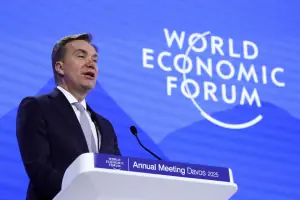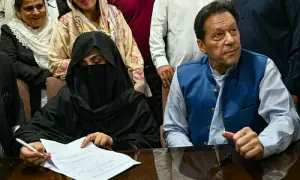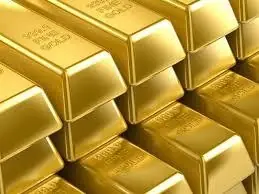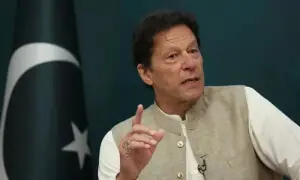Solar panels get cheap while mobile phones, hybrid cars, cement, property, cigarettes become expensive
5 min readSeveral items including mobile phones, hybrid cars, cement, property and cigarettes have become expensive while solar panels have become cheap as the federal government presented the annual budget for the Fiscal Year 2024-25.
“We need to go from a government-driven to market-driven model,” Finance Minister Muhammad Aurangzeb said while presenting the budget in the National Assembly session on Tuesday.
He presented his first federal budget with a total outlay of Rs18.9 trillion.
The budget for the upcoming year aims for a modest 3.6 per cent GDP growth.
Textile, leather
The government has suggested increasing the rate of GST on the TIER-I retailers of textile and leather from 15 per cent to 18 per cent.
“This will be applicable to the branded and expensive items of leather and textile,” Finance Minister Muhammad Aurangzeb said. “This text has been imposed on a section that affords to buy such expensive items. It will not affect the common citizen.”
Mobile phones
The government has recommended keeping mobile phone tax at an 18% standard rate. It would be applicable to different categories of mobile phones.
“Concessionary rates create distortions by only benefiting some specific items in the market while the standard rate ensures that everyone gets equal opportunity and market forces work effectively.”
Withholding tax on copper, coal, paper, plastic scrap
The federal government also announced its decision to impose withholding tax on copper, coal, paper, and plastic scrap.
It added that such sectors were disorganised and their contribution to the national exchequer was close to none.
Exemption for iron, steel scrap
The government has recommended that iron and steel scrap should be exempted from taxes. “It has been seen that registered persons buy scrap from the market without charging the sales tax. This means they don’t have input tax. According to this, they can adjust the output tax,” he said.
Aurangzeb added that fake invoices are being made to overcome such a problem. “To end this trend, it is recommended giving an exemption to iron and steel scrap from sales tax.”
Receiving advance tax
The federal government has decided to change the basis of advance tax on the purchase and registration of vehicles.
Under the current system, the advance tax on the sale and purchase of vehicles up to 2,000cc is levied based on the engine capacity. The minister noted that a significant increase has been seen in the prices of vehicles over the years.
It was recommended that the advance tax should be based on the price of the car rather than its engine capacity.
Punishment for selling fake cigarette
The federal government has recommended strict punishments for retailers selling cigarettes without tax stamps, including sealing their shops.
FED on acetate tow
Acetate tow is a basic element used in the production of cigarette filters. The finance minister recommended imposing Rs44,000 worth of federal excise duty (FED) on acetate tow.
“It will have no additional impact on the formal sector whereas the informal sector will give the FED,” it said.
Increase in FED on cement
Currently, the Rs2/kg FED is being charged on cement and the government has recommended that it should be increased to Rs3 per kg.
FED on immovable property
The government has recommended imposing five per cent FED on new plots, residential and commercial plots to stop speculation and bring stability to the real estate sector.
Locally manufactured solar panels to become more affordable
In a move aimed at promoting the domestic solar panel industry, the federal government has decided to offer tax concessions on the import of raw materials and components used in the manufacturing of solar panels, inverters, and batteries.
Aurangzeb said that in order to reduce the country’s dependence on imported solar panels and conserve precious foreign exchange, the government has decided to provide tax incentives for the local production of solar panels, inverters, and batteries.
Import duty exemption on hybrid vehicles to be discontinued
In a move aimed at supporting the domestic automotive industry, the government has decided to discontinue the customs duty concession on the import of hybrid vehicles.
“The custom duty exemption on hybrid vehicles was introduced in 2013 due to the significant price difference between hybrid and conventional cars driven by technological advancements,” he said. “But this price gap has now narrowed, and the local production of hybrid vehicles has also commenced.”
The finance minister stated that the government is now withdrawing this concession to promote the growth of local manufacturing.
Government proposes increased petroleum levies on fuel purchases
The government has proposed to increase the petroleum levy charged to consumers on the purchase of petrol and diesel, a move aimed at generating additional revenue for the exchequer.
Under the new proposal, the federal government will impose a petroleum levy of up to Rs80/litre on diesel and petrol.
The petroleum levy is set to remain at the current rate of Rs50 per litre on kerosene oil, however, for light diesel oil, the levy is proposed to be increased from the existing Rs50 to Rs75 per litre.
Similarly, for high-octane fuel, the petroleum levy is suggested to be raised from the current Rs50 to Rs75 per litre. The same increase, from Rs50 to Rs75 per litre, is proposed for E-10 gasoline as well.
The government has also recommended maintaining the current petroleum levy of Rs30,000 per metric ton on domestically produced liquefied petroleum gas (LPG).
Household goods, sugar, and fruits become costlier
The government has suggested imposing a Rs15 per kg FED on sugar manufacturers, effectively increasing the cost of the essential commodity.
Additionally, the exemption previously granted on the import of fruits and dried fruits has been withdrawn, meaning consumers will now have to bear the full cost of these items.
The review of concessions on the import of household goods is also part of the Finance Bill.
For the latest news, follow us on Twitter @Aaj_Urdu. We are also on Facebook, Instagram and YouTube.























Comments are closed on this story.